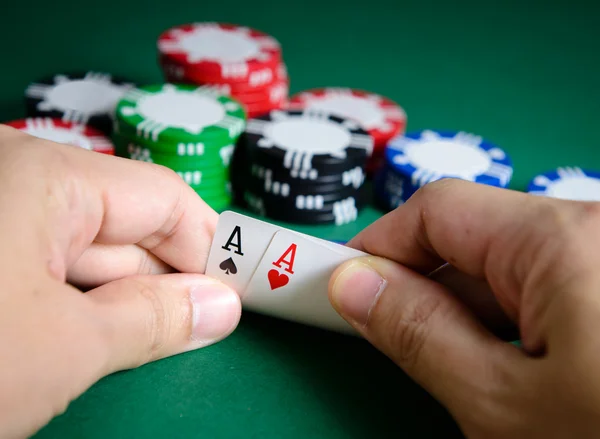Gambling can be an exhilarating form of entertainment for many, but it can also lead to a path of destruction for others. Recognizing the signs of gambling addiction is crucial for early intervention and recovery. This article will explore the hidden dangers of gambling addiction and provide you with key warning signs to watch for.
The Hidden Dangers of Gambling Addiction You Must Recognize
Gambling addiction, often referred to as compulsive gambling or pathological gambling, can have devastating effects on an individual’s life. The thrill of winning can quickly morph into a compulsive urge to gamble, leading to financial ruin, strained relationships, and severe emotional distress. Here are some hidden dangers associated with gambling addiction:
- Financial Consequences: Many individuals with gambling addiction find themselves deep in debt. They may resort to borrowing money, stealing, or using savings intended for essential needs such as rent or groceries to fund their gambling habits.
- Emotional Turmoil: Individuals may experience anxiety, depression, and feelings of hopelessness as their gambling spirals out of control. The initial excitement of gambling is often replaced by guilt and shame.
- Relationship Strain: Gambling can act as a wedge between loved ones. Trust issues arise, and relationships can suffer irreparable damage as family and friends become affected by the gambler’s actions.
- Legal Problems: In extreme cases, compulsive gamblers may engage in illegal activities to fund their addiction, leading to criminal charges and legal consequences.
Recognizing these dangers is vital for anyone involved in gambling. By understanding the stakes, you can be more vigilant about your behaviors and the behaviors of those around you.
Key Warning Signs That Indicate a Growing Gambling Problem
Identifying a gambling addiction requires careful observation of specific behaviors and patterns. To help you discern whether you or someone you know might be experiencing a gambling problem, consider the following key warning signs:
Common Warning Signs
- Preoccupation with Gambling: Constantly thinking about gambling, whether it’s past experiences or future bets, can indicate a growing obsession.
- Increased Tolerance: Needing to gamble with larger amounts of money to achieve the same level of excitement suggests a dangerous escalation in behavior.
- Failed Attempts to Cut Back: If efforts to reduce gambling frequency or amounts are unsuccessful, it’s a significant red flag.
- Chasing Losses: The tendency to gamble more to recover lost money can lead to a vicious cycle of debt.
- Neglecting Responsibilities: Losing interest in work, school, or family obligations due to gambling activities can indicate a serious problem.
- Isolation: Withdrawing from friends and family or avoiding social activities that don’t involve gambling is a common sign.
- Lying About Gambling: Concealing the extent of gambling activities from loved ones is often a sign of addiction.
Comparative Table of Warning Signs
| Warning Sign | Mild Level | Severe Level |
|---|---|---|
| Preoccupation with Gambling | Thinks about gambling occasionally | Constantly daydreams about it; affects daily life |
| Increased Tolerance | Bets slightly more than usual | Bets significantly more to feel excitement |
| Failed Attempts to Cut Back | Limits gambling days occasionally | Unable to stop even after significant losses |
| Chasing Losses | Occasionally gambles to recover a loss | Regularly gambles beyond means to recover losses |
| Neglecting Responsibilities | Misses a few social events | Regularly neglects work, family, and personal care |
| Isolation | Avoids some friends occasionally | Consistently isolates from all social activities |
| Lying About Gambling | Hides minor gambling activities | Creates elaborate lies about gambling habits |
Practical Tips to Address Gambling Addiction
If you or someone you know is showing signs of gambling addiction, consider the following steps:
- Open Communication: Encourage open conversations about gambling habits. Sometimes, sharing concerns can prompt reflection and action.
- Seek Professional Help: Therapy or counseling can be effective in addressing compulsive gambling behaviors. Look for professionals specializing in addiction.
- Join Support Groups: Organizations like Gamblers Anonymous provide a community of support for those struggling with gambling addiction.
- Set Financial Limits: Establish strict limits on how much money can be bet, and consider self-exclusion programs that many casinos offer.
- Redirect Interests: Encourage engaging in other hobbies or activities that do not involve gambling to fill the time and energy that would otherwise be spent gambling.
Recognizing and addressing gambling addiction is a crucial step toward recovery. By understanding the SECTIONS outlined above, you can better identify the potential problem and seek help before it escalates.
Frequently Asked Questions (FAQs)
5. How can I tell if I have a gambling problem?
If you find yourself preoccupied with gambling, feel the need to gamble with larger amounts of money, or have tried unsuccessfully to cut back, these may be indicators of a gambling problem.
6. What should I do if a loved one is exhibiting signs of gambling addiction?
Approach the situation with empathy and concern. Share your observations, encourage open dialogue, and suggest professional support or therapy.
7. Are there resources available for those struggling with gambling addiction?
Yes, numerous resources exist, including Gamblers Anonymous, various online support groups, and therapy options focused on addiction. Many local communities also offer treatment programs specifically for gambling addiction.
